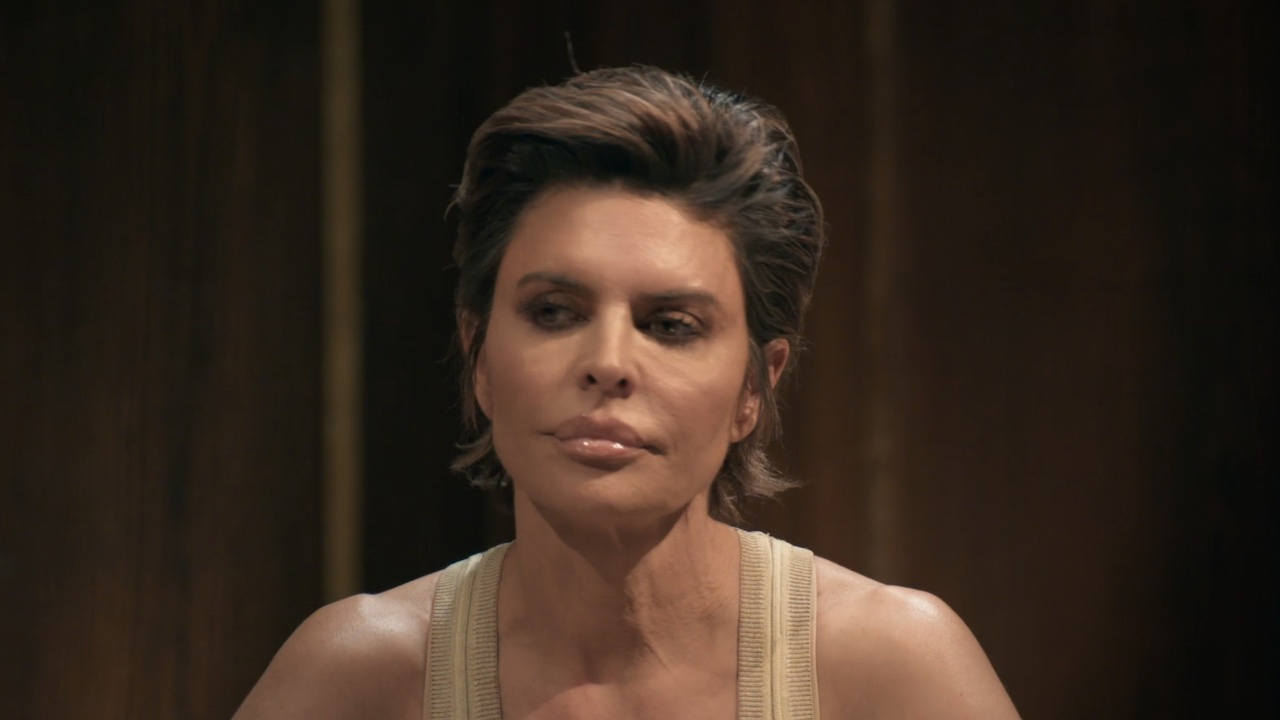Chutes And Ladders: 10 Hollywood Cliches Which Can Go Either Way
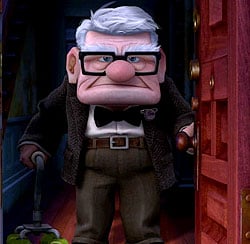
Your Daily Blend of Entertainment News
You are now subscribed
Your newsletter sign-up was successful
This article is one with nature. It has on its game face. Sure, there’s some ups and downs, pros and cons, but it tries its best and that’s all anyone can really ask. It’s worth reading. It has a mind of its own. It lives for the moment. It strives for something bigger. It doesn’t contain preservatives. It makes love, not war. It shoots for the stars, tones out the haters and yearns to be free. It doesn’t see color or judge based on ethnicity or sexual orientation. And that’s all you need to know because when the going gets tough, the tough get going. And this article is nothing, if not a tuft, a tuft of clichéd words and phrases you’ve already seen before sequenced in a semi-thought out order for consumption by a mass audience. Hooray for the mediocrity of the English language, recycled and repackaged in its original form by, of course, me.
That’s all I’m talking about really. Cliché. Me and clichés. The audience and clichés. The writers and clichés. The characters as clichés. Pixar’s newly released Up contains three of ‘em. A crotchety old man, a fat, annoying, awkward little boy and a talking dog. We’ve seen all three of those to varying degrees in everything from Grumpy Old Men (“Watch your mouth, you dumb friggin’ Swede”) to Billy Madison (“Ta-at today, Junior”) to 101 Dalmations (“We’ll all roll in soot!”), but through depth, heart and an intricate eye for dialogue-less detail, Carl Frederickson, Russell and Doug become so much more than their rough character outlines. They’re men (and man’s best friend) we’ve seen before, talked to before, interacted with before. Carl is an explorer, that he happens to be an old man, isolated and shaking his fist at the world, is not just him fulfilling a stereotype but the product of decades of choices, hardships and extraneous circumstances. Up takes the time to ask why Russell is needy and desperate to attain his final Wilderness badge. So many other movies don’t. They ask us to fill in our own gaps and just accept the clichés because we probably know someone in our own lives who has the same outlook.
Here’s a look at ten of the most famous movie character clichés with an example of how it can be done right (like Up) and an example of how it can be done wrong.
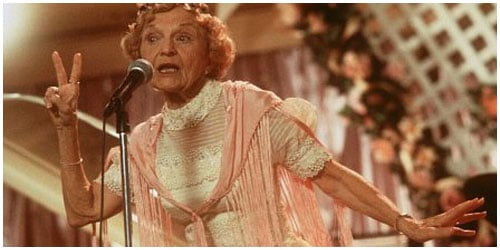
The Old Woman With A Blunt And Foul Tongue
Long past the point of considering herself an Aristocratic lady, this loose old codger will say and do anything for attention, usually under the assumption it no longer matters because her family has tuned her out. She slept with Nick Swardson in Grandma’s Boy; she made meatballs and dispensed sex advice in The Wedding Singer; and she stole Jim Carrey’s money in Dumb & Dumber.
Used Perfectly In: Spanglish, as played by Cloris Leachman. Evelyn Wright is ignored and chastised by the family for her drunken, inappropriate musings throughout much of the film, but she sobers up in time to help save her daughter’s marriage and deliver a beautiful, condescending remark about everyone being so self-absorbed they failed to notice her recent sobriety.
Nothing More Than A Bad Cliché In: Wedding Crashers, as played by Ellen Dow. Written into the script for nothing more than shock value when the raunch comedy decided to get all serious, Grandma Cleary bitches about Mrs. Roosevelt being a big dyke and makes things awkward for the family at the dinner table. She has no real backstory, no real connection to any of the main characters and simply exists to make dumb teenagers laugh at an old woman saying inappropriate things.
Your Daily Blend of Entertainment News
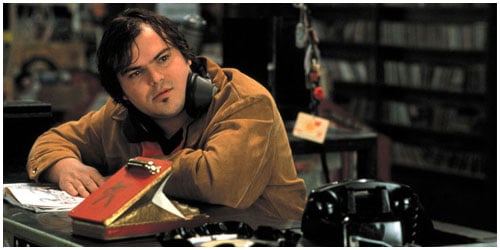
The Chubby Blowhard Best Friend
Since the beginning of man, there has been man’s more obnoxious, girlfriend-driving off best friend. Lazy and excited about anything but work, this douche bag is more often than not overweight, sporting facial hair and dressed in either a plain-colored shirt or bizarre vintage vest. He tells some dude he plays baseball like a girl in The Sandlot, some chick she looks like Danny Devito in Mean Girls. He even drops the n-bomb a lot in American History X.
Used Perfectly In: High Fidelity, as played by Jack Black. Good old Jack has a tendency to get a little obnoxious and in-your-face when given too much screen time, but he’s never better than here as Barry, a late twenty something record clerk offended by the bad taste of his coworkers and the general public. Lesser scripts would have pushed him into an obstreperous corner, but he provides one of the more subtly touching moments when he breaks with the stereotype and sadly admits sometimes Peter Frampton is awesome.
Nothing More Than A Bad Cliché In: Nutty Professor 2, as played by Eddie Murphy. Some people have retrospectively turned on the first Nutty Professor, but I still think it had a lot of laughs to be had, far more in fact than its horrid sequel. Eddie Murphy’s family loses all connection to reality on the second go around, jumping the shark, eating the entire turkey and farting their way to irrelevance. To quote the great Luke Wilson, “there was a time when we cared about whose ass it was and why it was farting.”
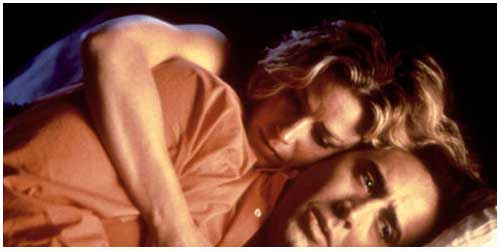
The Hooker With A Heart Of Gold
I’ve been told there are only two types of prostitutes in the world: the nasty, classless floozies working Tom Hanks’ Bachelor Party and the Mata Hari. I contend trannys don’t fall into either of those categories, but it’s probably all just semantics at this point. The hooker with a heart of gold has been around since long before Rehab hid the Israelites and Nancy did her thing in Oliver Twist. She seduces us with her body and charms us with her depth; other times just randomly turns good because the screenwriter felt like it.
Used Perfectly In: Leaving Las Vegas, as played by Elizabeth Shue. More beautiful than Helen and more corrupt than Aphrodite, Sera never asks Ben to stop drinking. She just holds him and cries for him and begs him to please eat some rice. That she never asks him to stop drinking is perhaps why she is either the hero or the villain in Leaving Las Vegas. Either way, she’s Ben’s angel, not his savior--and that, my friends, is so much cooler than Rebecca De Mornay putting out on the subway and Vivian Ward‘s unconventional laugh put together.
Nothing More Than A Bad Cliché In: Milk Money, as played by Melanie Griffith. Not even the coolest person named “V” on film in the last two decades, this one who doesn’t blow up buildings in the name of governmental opposition is recruited by some eleven year olds for the express purpose of seeing her boobs. At some point she woos Ed Harris and grows a heart of gold before fighting off some pimp ex-boyfriend in, if I can remember correctly, the kids’ school. Sure glad I saw that in theaters and missed out on The Lion King.
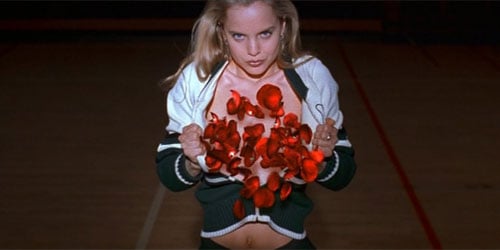
The Bitch Alpha Female
Often stunningly beautiful and pathologically insecure, this future or current prom queen or prom queen runner-up is a total bitch to those around her in order to mask her own shortcomings. Her hair was full of secrets in Mean Girls and she married Billy Christiansen in Romy & Michelle’s High School Reunion. Bijou Phillips played a skuzzy, redneck incarnation of her in Bully and some might even argue Kevin Smith’s wife Jennifer Schwalbach toned down the role a bit as Mrs. Dante Hicks in Clerks II.
Used Perfectly In: American Beauty, as played by Mena Suvari. Outwardly boisterous about her prospects as a model having already appeared in Seventeen once (even though some argued she looked fat), Angela Hayes makes wild claims about sleeping with photographers who shoot for Elle on like a regular basis but admits its her first time with Lester Burnham, as he gently assures her she’s anything bur ordinary. A lesser movie would have painted her as the seductive villain, but American Beauty adds enough layers to show she’s just a confused teenager trying to find her place.
Nothing More Than A Bad Cliché In: Heathers, as played by Kim Walker. Don’t take Heather Chandler’s inclusion on the naughty list as a slight against Heathers or the actress herself, but like Fenster in The Usual Suspects or Yvette in Clue, she exists here primarily to pass on, which stunts any chance she has for depth, real emotion or moral ambiguity. She’s the catalyst, a bitchy, insecure alpha female catalyst to push Winona Ryder and Christian Slater together and then apart.
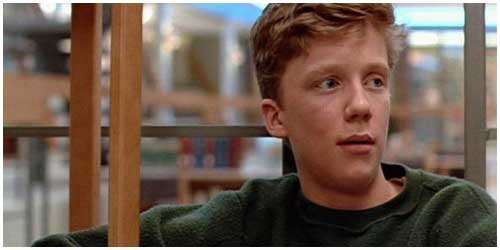
The Nice Guy Who Can’t Get Laid
Sometimes fat, usually just awkward and a little too smart for his own good, movies, just like real life, usually contain at least one poor son of a bitch who just hasn’t figured out how to communicate with women. Sometimes he’ll resort to fucking pies, other times he’ll get a fake Hawaiian identification to purchase alcohol. Either way, he’ll usually find someone to hook up with eventually, whether that’s done gracefully and realistically like Jon Favreau in Rudy, bizarrely and with an Asian quirk like in Rushmore or forcefully after a slew of wacky adventures like Josh Zuckerman in Sex Drive is dependent upon how subtle the film in question is.
Used Perfectly In: The Breakfast Club, as played by Anthony Michael Hall. Brian Johnson doesn’t have sex with Claire. She leaves with the second-rate hood criminal John Bender at the end of The Breakfast Club, and in a lot of ways, that’s why The Breakfast Club is a lot better than people give it credit for. Sure, we’d all like to see the sweet, childish intellectual hook up with the sushi-eating princess, but that’s not how life works. At least not life in high school. Brian needs to grow up first, and you don’t do that in one afternoon of detention. He smokes pot, he essentially tells the principal to go fuck himself, and you know what, that’s enough. Maturing isn’t just about having sex or charming girls into liking you, it’s a gradual process that first involves finding comfort in yourself.
Nothing More Than A Bad Cliché In: Revenge Of The Nerds, as played by Robert Carradine. Everyone in this entire movie would be in jail. The Alpha Betas would be there for destroying the Tri-Lamb’s house. The Tri-Lambs would be incarcerated for creepily setting up cameras in that sorority house. And Lewis would be serving twenty-five years for rape because that’s what he does really. I know Betty is kind of a big bitch, but disguising yourself as someone else in order to dupe some cheerleader into sleeping with you is rape. Lewis is a rapist, and Revenge Of The Nerds asks us to accept this because Betty somehow decides she was into that shit. No thank you.
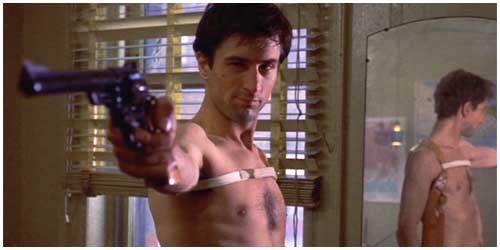
The Criminal With Good Intentions
Most people don’t steal or murder for the sake of breaking the law, they do so after landing on too many ladders, not even chutes. Sure, there’s a few Frank Costello’s or Garland Green’s out there who kill simply for the rush of it all, but more often than not, there’s some honest, noble intentions behind the criminality or even in overcoming the nature instincts of a predator. Cape Fear’s Max Cady, now learned and well-spoken, can’t understand why his own lawyer would send him up the creek. The Woodsman’s Walter desperately wants to get his past his own proclivities. Jim Carrey wants to live in a world where his lawn doesn’t get repossessed. A man’s got to fight for what’s his, and the criminal with good intentions always fights for something more than just the crime itself.
Used Perfectly In: Taxi Driver, as played by Robert DeNiro. Tales of criminals so often end in their finding of virtue, heroism and redemption. The story of Travis Bickle climaxes in much the same way but with a tinge of loneliness, isolation and fear. He’s a sociopath who can’t hide his stripes. As writer Paul Schrader said about his character, “he’s not going to be the hero next time.” But Travis Bickle was the hero this time. He zealously protected Iris with own bloody trigger finger, and thus, Scorsese gives us the criminal, who for at least one day, had good intentions.
Nothing More Than A Bad Cliché In: Robin Hood, as played by various actors. Yes, I know Robin Hood has been used arrows of times in a bow full of different ways, but at his core, the character fundamentally sucks. Like some good-intentioned Communist, he prances about thieving for altruism in the dark recesses of Karl Marx’s subconscious. I hate this man--not only for his phony, flawed ideology--but for this blasphemy somehow always ending in his deflowering of Maid Marian Fitzwalter of Leaford. Come’on. I get putting a skin mask on and doing crazy shit because your goddamn HMO won’t provide for your kid’s transplant, but basing your entire life on the premise every Steve, Bob, and Charlie is entitled to free money simply because other more industrious titans of enterprise can spare it is nothing more than a life of lies.
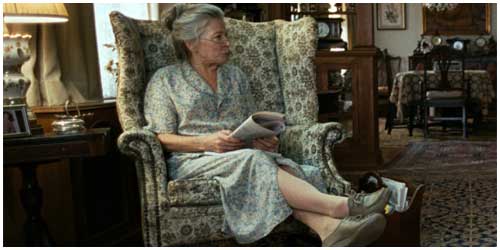
The Overprotective Mother
Not to be confused with the ill-tempered mom who forgets her own son, yet remembers Buzz or the one who warmly tells her son to go get in trouble, not too much trouble, but trouble, the overprotective mother has been around ever since Eve forgot to tell her kids not to murder one another. She threatens Ben Affleck with a shotgun in Dazed And Confused and totally falls for Matthew Broderick’s bullshit wet palm act in Ferris Bueller’s Day Off.
Used Perfectly In: Little Children, as played by Phyllis Somerville. Mae McGorvey is the overprotective mother of a pedophile, though it’s unclear whether she’s overprotective by nature or overprotective by side-effect of her son’s crimes. She encourages him to go out on a date, likely knowing it will not end well because that’s what she feels like a good mother should do. She washes away the hate messages painted on their sidewalk and takes down the flyers informing the public of her son’s past because the need to protect one’s own family can be stronger than the need to protect society. That’s what moms do, they love us in spite of ourselves even when it compromises their own moral judgment.
Nothing More Than A Bad Cliché In: Detroit Rock City, as played by Lin Shaye. I can get on board with the idea of an overprotective villainess who pays more attention to Jesus than her own son. These people do exist, but everything about Mrs. Bruce feels so inflated and forced in Detroit Rock City. She smokes, hates Rock N Roll, dressers her son in effeminate clothing, leads protest marches, shows up at her son’s high school and yells over the intercom. She’s a Punch & Judy sketch who loses all humanity amidst her yelling and self-absorption.
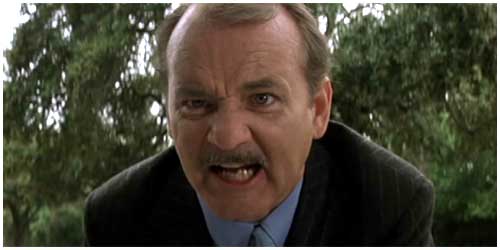
The Absentee Father
As Tracy Jordan said about his own father on 30 Rock, “that man must be dead or he’d be living in my pool house.“ Either busy with his own life (Up), checked out of life altogether (Igby Goes Down) or trying to conquer life itself (Star Wars), the absentee father is a blight on society and frequent excuse for characters to act irrationally and without motivation. Why’s Meredith Grey all dark and twisty? Oh, her dad left. Why’s Cyrus The Virus serving all those life sentences? His daddy didn’t teach him nothing. Sometimes he’ll make a surprise appearance in the movie’s last scene, but that usually ends in his being tackled by Kathy Bates.
Used Perfectly In: Rushmore, as played by Bill Murray. Not divorced until at least halfway through the movie, Henry Blume hates his entire family almost as sport. Judging every stupid comment with his eyes and drinking hard liquor both inside and out of his own pool, Henry Blume has long since tuned his entire family out, and his utter indifference to the whole situation is every bit as harsh as Jeff Daniels walking around town during work hours in Imaginary Heroes.
Nothing More Than A Bad Cliché In: Rookie Of The Year, as played by no one. Rookie Of The Year is a loveable film which should be watched by all in their early twenties once every few months for the rest of their lives. So, as much as it pains my soul to chastise this film, how can I not when it is the ultimate absentee father cliché? Boy grows up with a single mom, she starts dating a secretly evil, overtly douchebagish middle-aged buffoon whom boy hates. Boy then surreptitiously identifies Gary Busey as the new father he wants and orchestrates drinks in the limousine for his mother and Gary Busey. That’s how it ended when you’re parents split up, right?
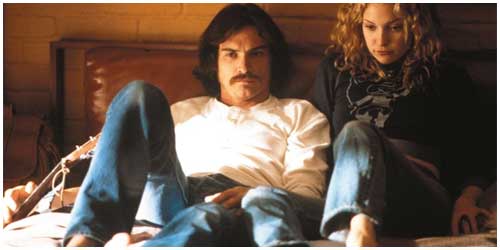
The Player Who Is Desperately In Love
At the heart of every Hank Moody, there’s the architect, mother of his child he pines for. For playboy Jason Patric in Your Friends And Neighbors, it was a boy he’d raped in high school. For Michael Caine’s Alfie, it was Ruby, at least briefly. Once you get past the fucking and punching, there’s a girl, there is always a girl. Even Stifler had Michelle’s little sister, and as movies tell us, no matter how singularly devoted someone is to spreading the seed, there will always be one girl who can settle ‘em down.
Used Perfectly In: Almost Famous, as played by Billy Crudup. Russell Hammond is a brilliant guitarist who slowly realizes he’s perhaps too brilliant for his bandmmates, too brilliant for his less glamorous wife, too brilliant for anything less than himself, Bob Dylan and the cover of Rolling Stone. He’s desperately in love with the beautiful Penny Lane, who loves him so unconditionally she’s points him toward saving his own humanity rather than herself in the film’s closing minutes. He trades his greatest love for fifty bucks and a case of beer. She still follows him to New York. And he turns his back. Somber, realistic and way better than Joe Dirt returning for the chick from That 80s Show.
Nothing More Than A Bad Cliché In: Waiting, as played by Ryan Reynolds. I don’t so much have a problem with Monty in this film as I do a problem with how painfully obvious his decision not to sleep with the underage hostess is. He’s the sly, player douche bag who hurts everyone a little bit but doesn’t quite mean to. He can’t sleep with an underage girl without some serious plot tinkering, and Waiting isn’t exactly the movie to wait around for those details. Honestly, why waste time with depth and contradictory evidence when it would come at the expense of Dane Cook screaming about the Thunderdome.
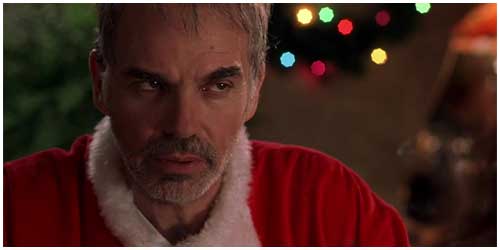
The Drunk/ Drug Addict
A comedic, almost sitcom-like option once Lot got hammered and impregnated his own daughters, the drunk works just as well in comedy as drama. Frank ’The Tank’ will gladly do one anytime you ask at the hilarious annoyance of his wife, just as Ben Sanderson will take another drink at the frightening loss of his family. It’s about denial and escape, running from your past and refusing to embrace the present. A few too many cocktails can be laughed off when you have to listen to jokes about dentists all night, Harold Weir, but shooting up inside your office in Permanent Midnight isn’t as humorous for the bosses, Ben Stiller.
Used Perfectly In: Bad Santa, as played by Billy Bob Thornton. Sure, I could have chosen a more serious example with better acting, maybe a more sensitive premise, but Willie T. Stokes cruising the department store for heavyset women willing to put out in the dressing rooms is enough to prove how wonderfully original the drunk can become. He gulps straight from the bottle during inappropriate hours, buys children t-shirts emblazoned with harsh, real world advice and gets morose and detached when talking about his sketchy past, a delicious triumvirate of addict behavior.
Nothing More Than A Bad Cliché In: Step Brothers, as played by Richard Jenkins. Was anyone else as confused as I when halfway through this film the guy from Six Feet Under started excusing himself to hit up the bars? Don’t get me wrong, Step Brothers has its share of hilarious moments, but the whole drinking angle is nothing more than a lame excuse for their parents to get separated, thus pushing Ferrell and C. Reilly apart so they could invariably come together during the last few minutes. Movie characters either write themselves or the author contradicts their natural actions in the way of comedy, drama, or superficial plot action. I’m sure Robert DoBack wasn’t too happy about becoming a drunk simply to facilitate a reunion between his two quasi sons, especially at the expense of his boat and his ho.
Mack Rawden is the Editor-In-Chief of CinemaBlend. He first started working at the publication as a writer back in 2007 and has held various jobs at the site in the time since including Managing Editor, Pop Culture Editor and Staff Writer. He now splits his time between working on CinemaBlend’s user experience, helping to plan the site’s editorial direction and writing passionate articles about niche entertainment topics he’s into. He graduated from Indiana University with a degree in English (go Hoosiers!) and has been interviewed and quoted in a variety of publications including Digiday. Enthusiastic about Clue, case-of-the-week mysteries, a great wrestling promo and cookies at Disney World. Less enthusiastic about the pricing structure of cable, loud noises and Tuesdays.
